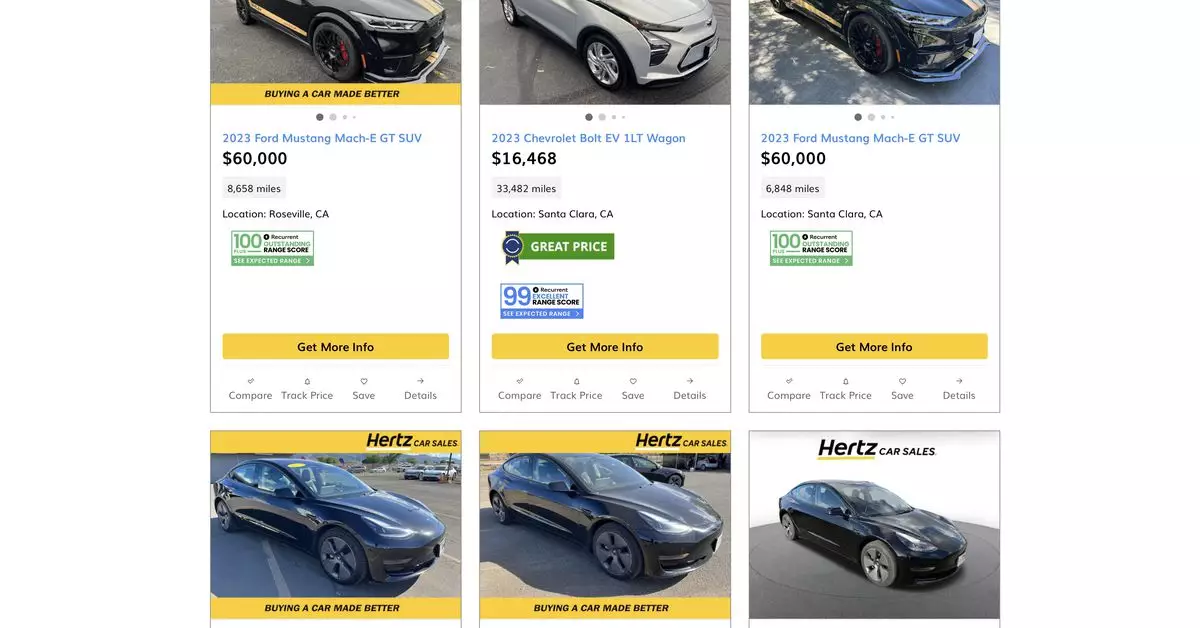In a landscape rapidly changing due to climate awareness and technological advancements, electric vehicles (EVs) are becoming a linchpin for many industries, including car rentals. Recently, Hertz has embarked on a novel strategy that draws attention to both the growing EV market and consumer purchasing behavior. This move, aimed primarily at enhancing customer engagement, revolves around the idea of giving renters the option to buy the electric vehicles they’re using, creating a unique intersection between rental and retail.
Reports have surfaced indicating that Hertz has been reaching out to several of their EV renters with compelling offers, essentially allowing them to purchase the rental cars they have been driving. For example, a 2023 Tesla Model 3 renter shared on social media that they received an offer for just under $18,000. Interestingly, this figure is in line with other listings on Hertz’s Car Sales website. The vehicle in question had accrued around 30,000 miles, prompting the discussion about the real value of used EVs in today’s market. Comparatively, another renter noted an offer of around $18,442 for a 2023 Chevy Bolt, while yet another individual reported a Polestar 2 price tag of $28,500—each deal containing distinct characteristics that illustrate the variable landscape of used EV pricing.
One of the attractive features of this rental-to-buy scheme is the accompanying warranties offered by Hertz. The limited 12-month, 12,000-mile powertrain warranty provides a level of reassurance for potential buyers, allowing them to transition from renting to ownership with some peace of mind. Moreover, the seven-day buy-back offer adds an intriguing twist by giving customers the opportunity to reconsider their decision shortly after purchase, ensuring their satisfaction with the vehicle.
In a conversation with The Verge, Hertz’s communications director, Jamie Line, clarified that this initiative isn’t necessarily a brand-new endeavor but rather part of a broader strategy to connect their rental customers with sales opportunities. By integrating these two channels, Hertz aims to not only promote awareness of its vehicle sales but also cater to potential buyers who might be interested in acquiring the EV they have been renting, enhancing the overall customer experience.
Although Hertz initiated plans to electrify its entire rental fleet, the journey has not been without obstacles. Last year, the company faced criticism for scaling back its electrification efforts amid reports of disappointing customer demand and repair complications with certain models, notably the Tesla Model 3. The decision in February to stop acquiring Polestar 2 vehicles further illustrates the challenges rendering large-scale deployment of EVs a complex issue.
Hertz’s current strategy of offering rental customers the chance to purchase EVs they have been using is a fascinating intersection of convenience and opportunity. As this rental giant navigates challenges in its fleet transition, it also opens up avenues for consumer engagement that foster growth in the electric vehicle market. Ultimately, as the EV landscape continues to evolve, Hertz’s adaptive strategies may serve as a blueprint for other rental companies looking to engage with environmentally conscious consumers.

